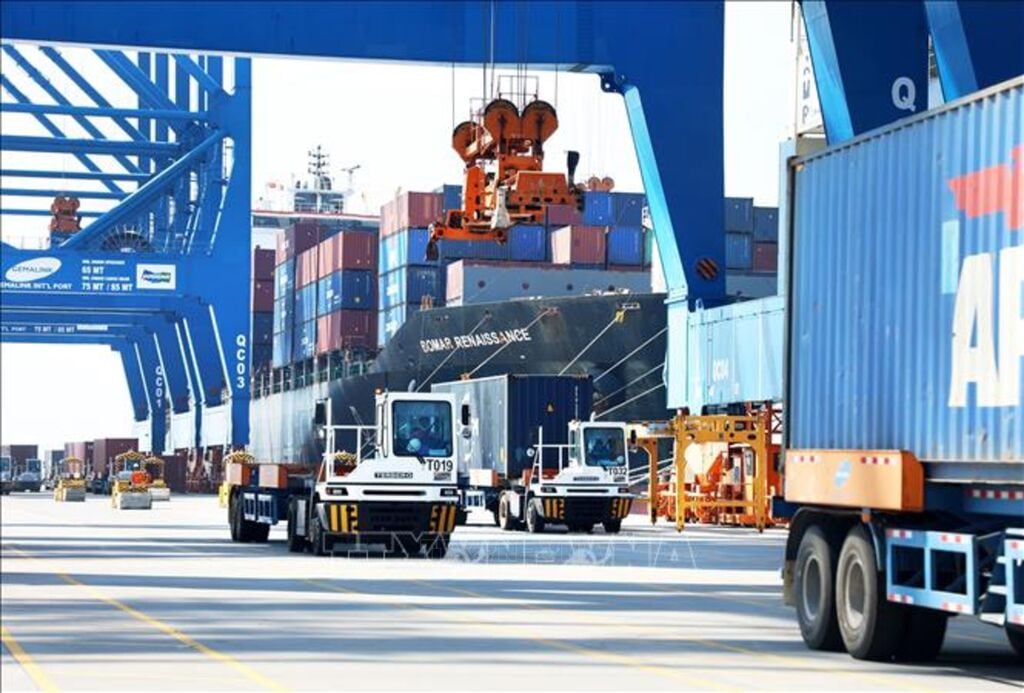
In the market diversification strategy, in addition to niche and potential markets, the EU - the second largest export market - is becoming a "strategic gateway", an attractive destination for most businesses.
However, to overcome legal barriers to promote goods into the EU, Vietnam needs to reposition its role in the global supply chain, focus on strengthening internal strength, and effectively utilize the advantages of the international cooperation network. At the same time, businesses need to diversify and improve product quality and change investment strategies to strengthen national confidence and competitiveness.
Beyond the Storm
The announcement by US President Donald Trump to suspend reciprocal tariffs on partners for 90 days on the morning of April 10 (Vietnam time) is an opportunity for Vietnam to exchange, dialogue, and negotiate while restructuring production and the market.
Prime Minister Pham Minh Chinh signed Decision No. 753/QD-TTg on the establishment of the Government Negotiation Delegation on trade issues with the United States, with Minister of Industry and Trade Nguyen Hong Dien assigned as Head of the Delegation.
The core task of the Negotiation Delegation is to preside over and coordinate with relevant ministries and branches to develop scenarios and negotiation plans with the United States on reciprocal trade agreements, ensuring the principles of national and ethnic interests, risk sharing, and harmonization of interests.
In addition, negotiate with the US side to reach a suitable, balanced, stable, sustainable, effective, mutually respectful and mutually beneficial trade agreement.
In recent times, the Government has also had many proactive solutions to respond to tariff fluctuations, directing support for businesses through tax policies such as tax deferral and refund; building to amend laws to reduce taxes, fees, and charges submitted to the National Assembly; reducing land rent, reducing compliance costs... to reduce input costs, increasing competitiveness for businesses.
Along with proactive response and negotiation efforts, according to economic experts, the next important step is for Vietnam to clearly establish a decisive development strategy for the upcoming period. Furthermore, the global trade game has changed, so Vietnam needs to diversify its markets and products to avoid dependence on one large market. Therefore, the survival strategy in the coming period is to diversify both markets and product lines and increase the value of Vietnam's contribution to the global supply chain.
Not only focusing on traditional markets, Vietnam needs to boldly exploit potential markets such as the Middle East, South America or Africa. On the other hand, it is necessary to avoid over-dependence on a few key export industries but should expand the Halal industry, deep processing...
“Even if we accept a decrease in export scale, if the added value in exports increases, growth can still be achieved. Then, the benefits to the economy are still guaranteed, while minimizing risks from tariff measures of large economies,” economic experts emphasized.
Ms. Nguyen Thi Hoang Thuy - Director, Head of the Vietnam Trade Office in Sweden, concurrently in charge of the Northern European market, said: Although the new US tax policy is a big challenge, it is also an opportunity for Vietnam to diversify its market, reduce dependence on the US and short-term orders. In addition, transforming the competitive model from low price to quality, sustainability, and traceability aims to position Vietnamese goods as a reliable alternative in the global supply chain.
“The EU and Northern Europe, thanks to political stability and the cooperation framework of the EU-Vietnam Free Trade Agreement (EVFTA), are emerging as strategic gateways for Vietnamese exports. It is important that businesses not only weather the storm but also take advantage of the opportunity to reposition Vietnamese goods on the global trade map as not only cheap but also reliable green quality,” said Ms. Nguyen Thi Hoang Thuy.
Market positioning
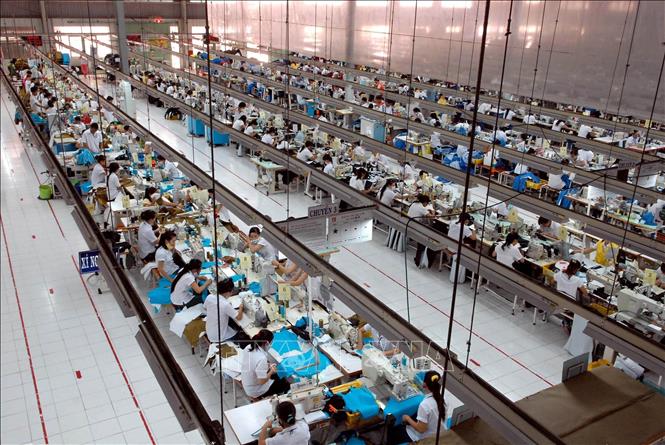
Recently, at the launching ceremony of the 16th edition of the White Book 2025 with the theme "Strategic Priorities", Ambassador, Head of the EU Delegation to Vietnam, Mr. Julien Guerrier suggested: The EU and Vietnam should turn the challenge from the new US tariffs into an opportunity to create more benefits for trade and investment between the two sides.
In the coming time, the two sides can continue to cooperate in potential areas such as human resource development, education, digital economy, green and circular economy, artificial intelligence, innovation and semiconductors. In particular, the upcoming visits of EU Trade Commissioner Maroš Šefčovič and President of the European Commission Ursula von der Leyen to Vietnam as well as the upgrading of EU-Vietnam relations will be important milestones for the two sides to jointly chart the path for future development.
EuroCham Vietnam Chairman Bruno Jaspaert also announced that: As soon as the US announced the reciprocal tariffs with Vietnam, EuroCham conducted a survey and the results showed that no member announced that they would close factories in Vietnam. Notably, 1/4 of European companies said that the new tax policy did not affect the workforce. About 25% of European businesses in Vietnam assessed the impact as neutral - neither good nor bad. In fact, nearly 10% said that this tax policy could have a positive impact.
“Vietnam has a friend – the EU is in the same boat and is looking for more friends. So hopefully the positive thing that comes out of this storm is the increasingly strengthened partnership between Vietnam and the EU.
In order to improve product quality to meet market demand, Mr. Than Duc Viet - General Director of May 10 Corporation, in preparation for the long-term goal of continuing to expand production and export, May 10 has gradually shifted to green production, starting with investing in energy-saving equipment, saving electricity, using renewable energy such as solar power...
In addition, May 10 also signed agreements with domestic and international raw material suppliers with the goal of increasing the proportion of recycled fibers used in products and increasing the use of organic fibers for new products to meet greening requirements.
Similarly, Mr. Nguyen Duc Minh - Vice Chairman of the Hanoi Association of Key Industrial Products Manufacturing Enterprises (HAMI) shared: In the current context, when the global economy is being strongly affected by political and economic fluctuations, green transformation and digitalization are not only trends, but have become prerequisites for manufacturing enterprises to maintain and improve their competitiveness.
"Green transformation and digitalization are not only trends but have become inevitable requirements in the development and integration strategies of key industrial enterprises," affirmed Mr. Nguyen Duc Minh.
Mr. To Hoai Nam - Permanent Vice President and General Secretary of the Vietnam Association of Small and Medium Enterprises said: In addition to building support policies, the State needs to build adaptive capacity for businesses. Accordingly, increasing investment in the tariff risk warning system, as well as other events in the world, helps businesses predict changes in market policies.
In addition, the State also needs to implement programs and plans for in-depth training on the market, and innovate production models according to ESG criteria (environment - society - governance) for businesses. In addition, supporting businesses to improve the image and recognition of Vietnamese products in the international arena will be a key factor in helping businesses access new markets.
“Accompanying businesses during this period is not only short-term support to overcome tariff difficulties but also a sustainable development strategy. This is also a way to affirm the role of Vietnamese enterprises in the global supply chain, gradually building an independent, self-reliant economy that can flexibly adapt to all fluctuations in global trade,” said Mr. To Hoai Nam.
Giving advice to businesses, Mr. To Hoai Nam recommended changing the supply chain structure towards risk dispersion and expanding to many different markets. Because, businesses depending on traditional markets when there are fluctuations in tariffs as well as technical standards barriers will easily fall into a passive position, without a plan to adapt and replace in urgent times.
In addition, businesses need to focus on investing in developing green, clean, and environmentally friendly product lines. This is an inevitable trend of global consumption, and at the same time, it also helps Vietnamese products easily overcome technical barriers and strict standards. Because if we grasp it well, not only the story with the EU market, Vietnam can completely position itself in the global supply chain, become a strategic supplier and be respected by investors and consumers.
Source: https://doanhnghiepvn.vn/kinh-te/chien-luoc-dinh-vi-cho-hang-viet-truoc-song-thue-quan/20250415060816159


![[Photo] Prime Minister Pham Minh Chinh and Ethiopian Prime Minister visit Tran Quoc Pagoda](https://vstatic.vietnam.vn/vietnam/resource/IMAGE/2025/4/17/18ba6e1e73f94a618f5b5e9c1bd364a8)
![[Photo] Warm meeting between the two First Ladies of the Prime Ministers of Vietnam and Ethiopia with visually impaired students of Nguyen Dinh Chieu School](https://vstatic.vietnam.vn/vietnam/resource/IMAGE/2025/4/17/b1a43ba73eb94fea89034e458154f7ae)
![[Photo] General Secretary To Lam receives French Ambassador to Vietnam Olivier Brochet](https://vstatic.vietnam.vn/vietnam/resource/IMAGE/2025/4/17/49224f0f12e84b66a73b17eb251f7278)
![[Photo] President Luong Cuong receives Kenyan Defense Minister Soipan Tuya](https://vstatic.vietnam.vn/vietnam/resource/IMAGE/2025/4/17/0e7a5185e8144d73af91e67e03567f41)
![[Photo] Promoting friendship, solidarity and cooperation between the armies and people of the two countries](https://vstatic.vietnam.vn/vietnam/resource/IMAGE/2025/4/17/0c4d087864f14092aed77252590b6bae)
![[Photo] Welcoming ceremony for Chinese Defense Minister and delegation for friendship exchange](https://vstatic.vietnam.vn/vietnam/resource/IMAGE/2025/4/17/fadd533046594e5cacbb28de4c4d5655)
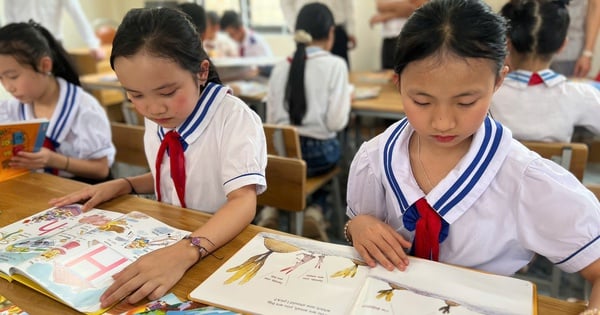
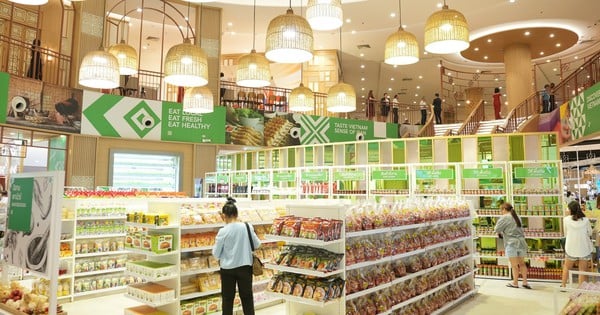

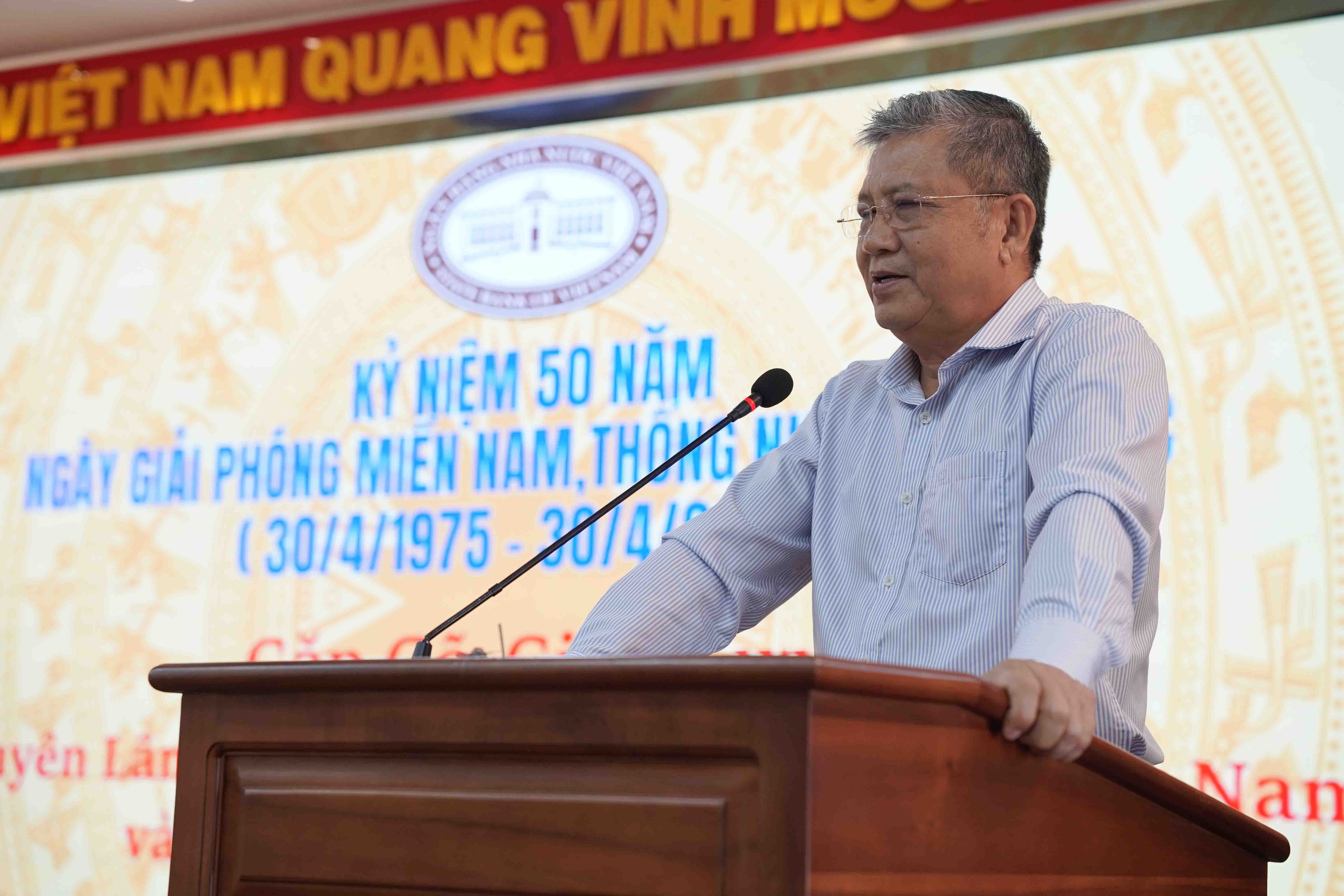
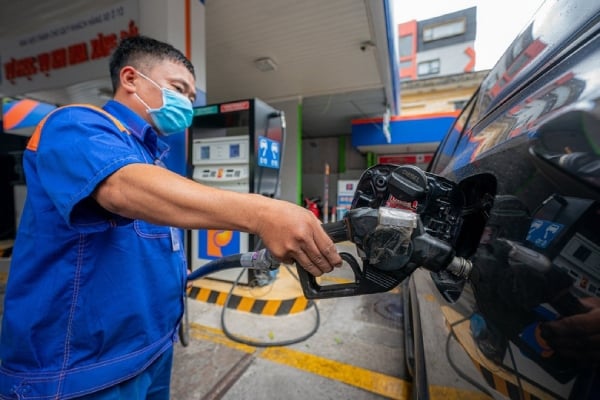
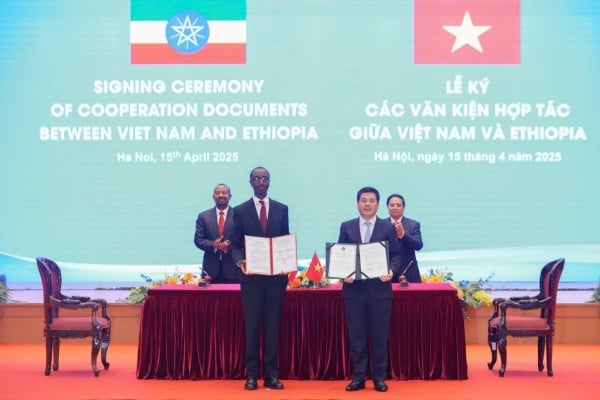







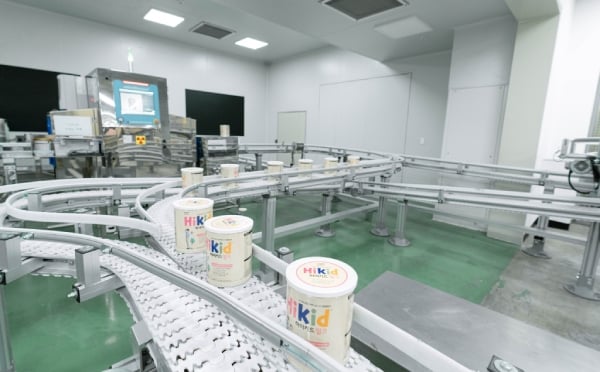






























![[Video] Viettel officially puts into operation the largest submarine optical cable line in Vietnam](https://vstatic.vietnam.vn/vietnam/resource/IMAGE/2025/4/17/f19008c6010c4a538cc422cb791ca0a1)















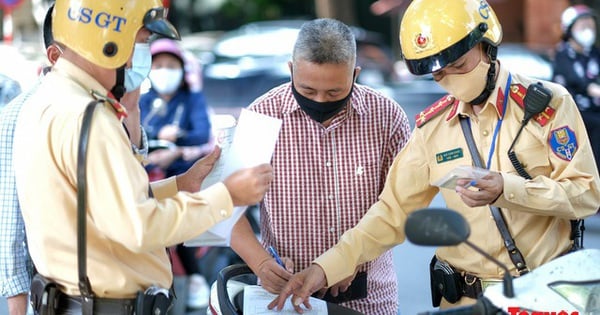

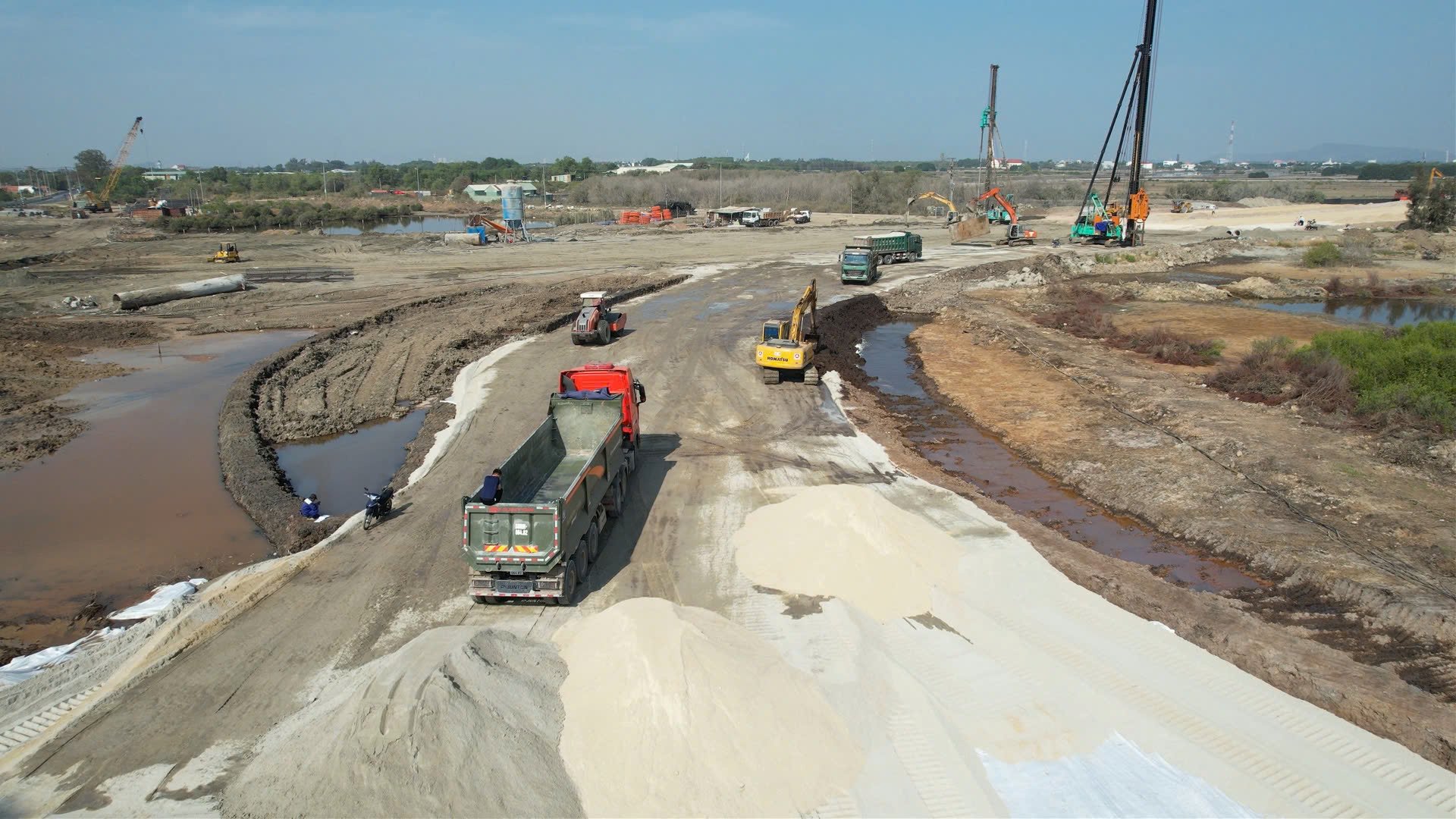

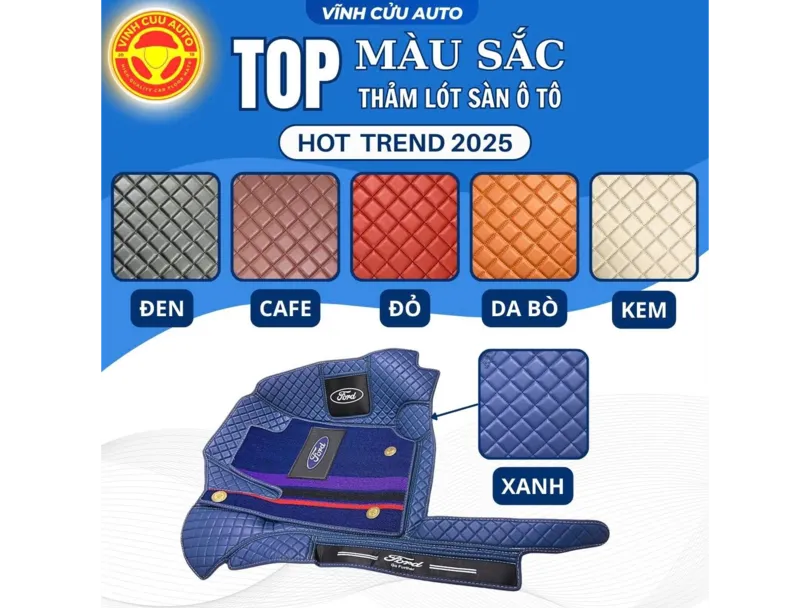

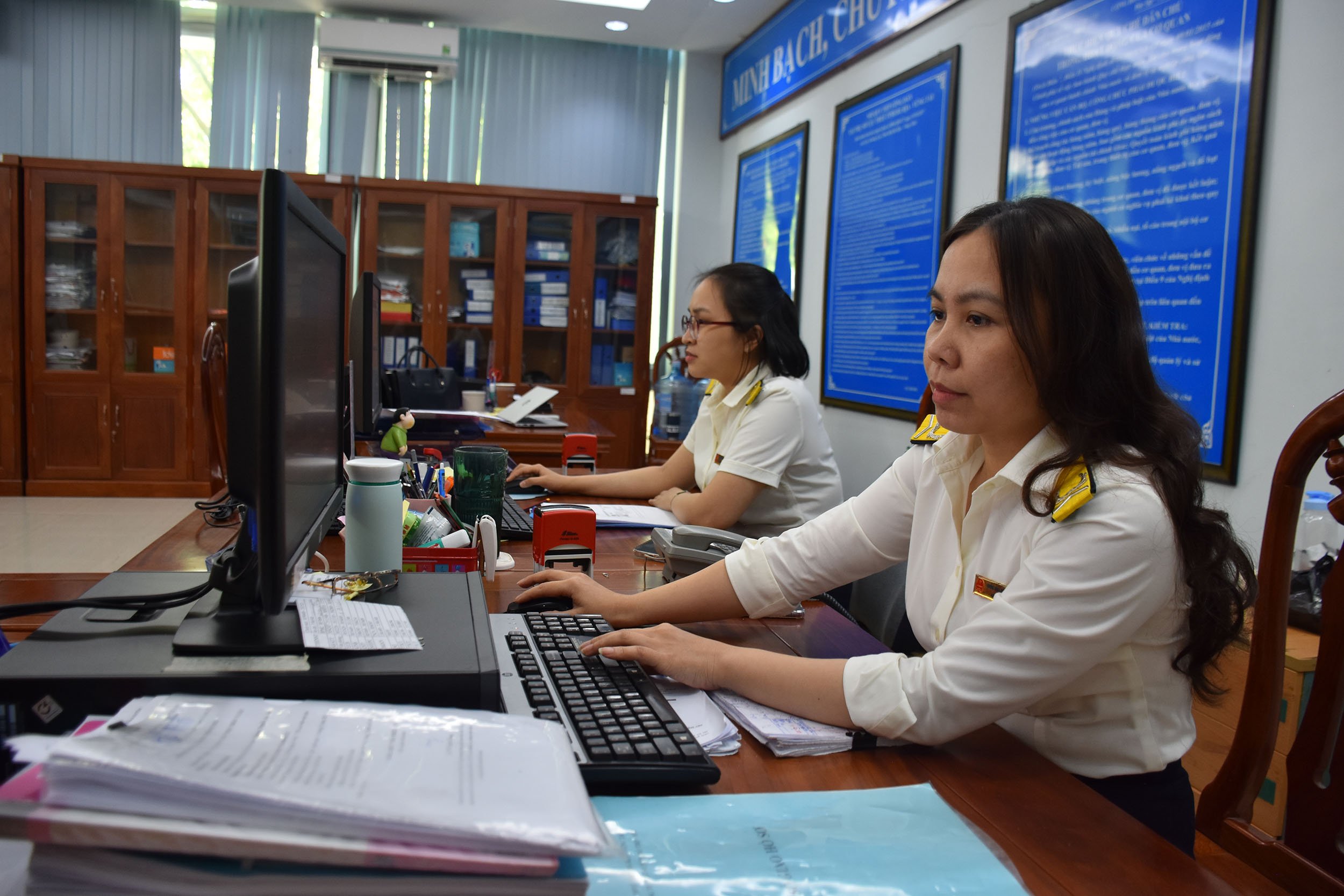


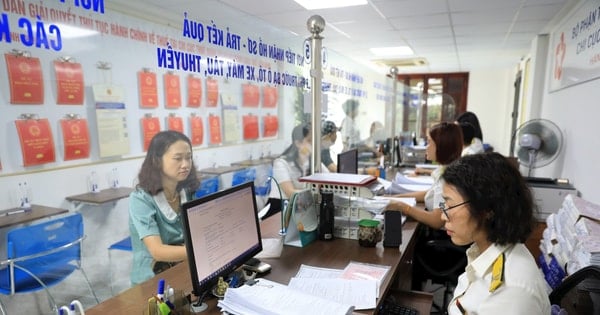

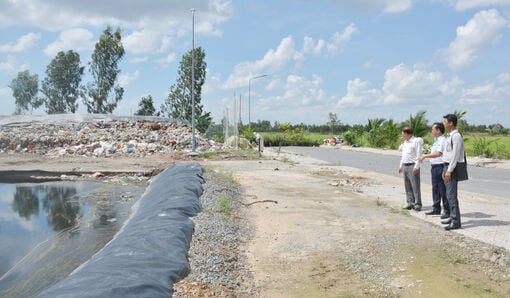











Comment (0)